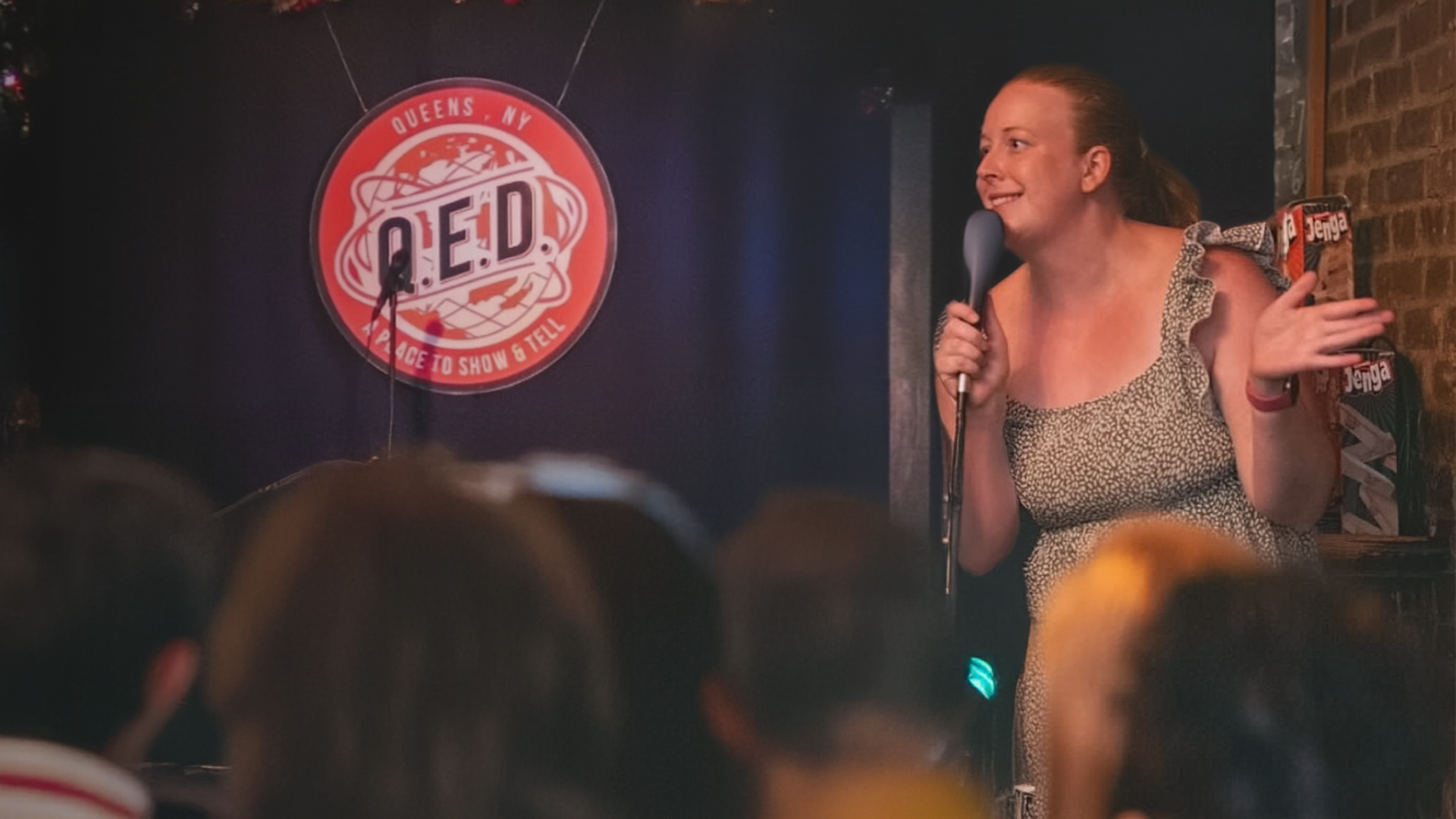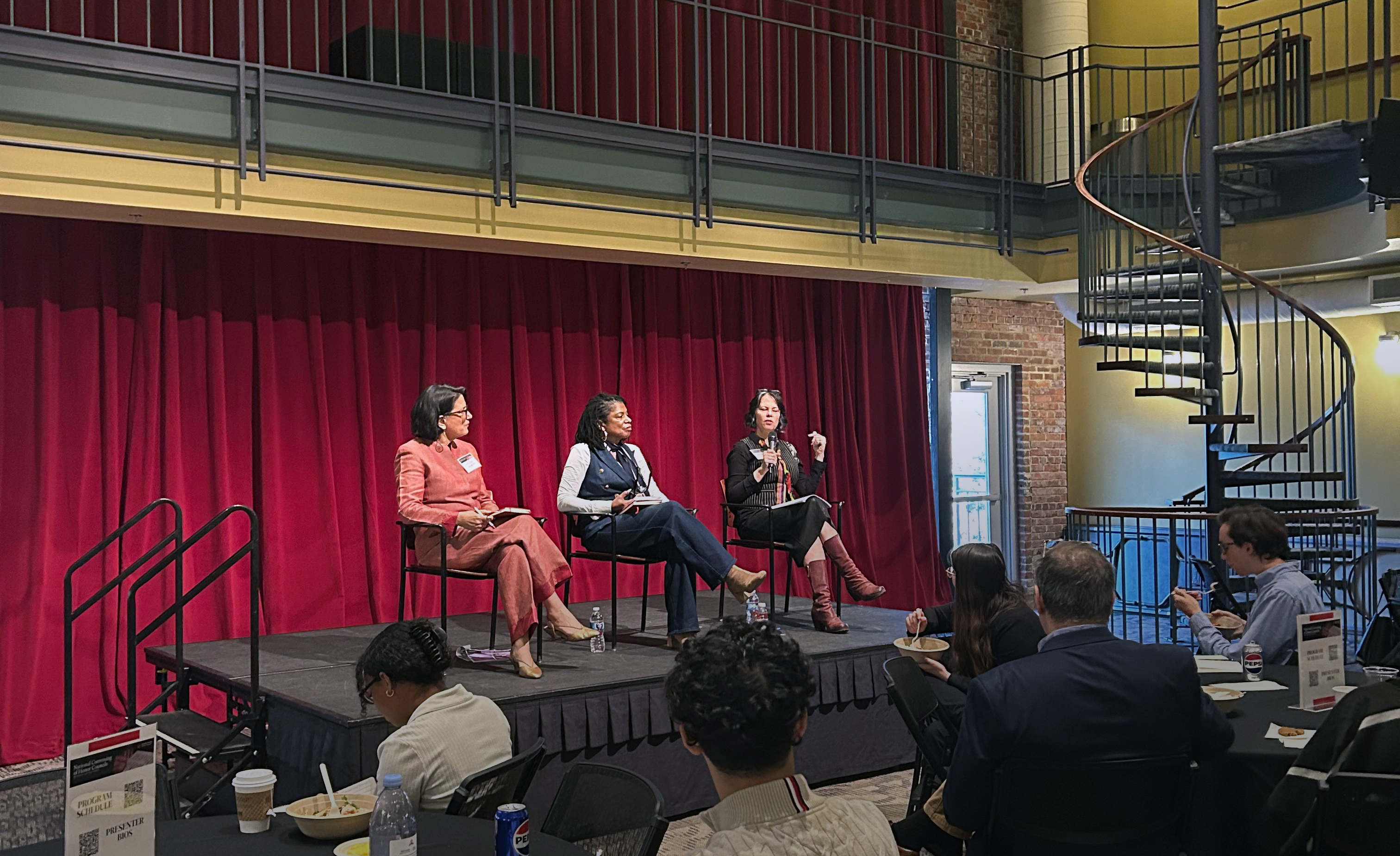Going Places: Alums Honor Professor Emeritus Through International Travel, Research Endowment for Students
May 13, 2025
- Author
- Caroline Roy ’20

Davidson College students and hospital staff at Mwandi Mission Hospital in Zambia
Students called Jerry Putnam “The Sage” because of the strong impression and profound impact he had on his biology classes and pre-medical advisees.
Peggy Noel ’79 remembers his high standards for students and rigorous teaching style — even for Davidson College. In early morning classes, he’d often remind students, “While you were sleeping, I was working!”
She smiles at the memory.
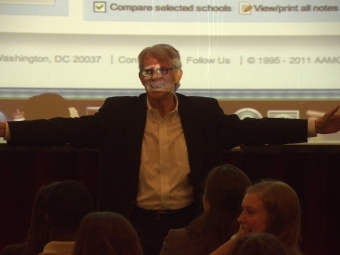
Professor Putnam speaks to premedical students in the C. Shaw Smith 900 Room of the Alvarez College Union in 2015
“He was a demanding professor who took no excuses,” Noel said. “But he also had a great sense of humor and always believed we could meet his standards. He especially had a heart for students who didn’t have the necessary resources and helped us find opportunities that wouldn’t have otherwise been available. My life has been enriched by knowing him.”
When Putnam, a biology professor, retired in 2019 after 46 years at Davidson, his former students wanted to honor his legacy by creating an endowed biology fund dedicated to helping students pursue research and career interests across the globe.
Combining their diverse skills and connections, classmates Noel, Laurie Bingaman Lackey ’79 and John Parkerson ’79 teamed up to spread the word. They compiled a list of potential donors, many of them doctors, and started making calls.
“Eighty-percent of the time, when I mentioned Jerry’s name, I wound up hearing an anecdote about something he did in class,” Lackey said. “Everyone had some crazy, fond, irreverent memory to share.”
Putnam often led international summer trips, taking groups of students to African countries including Zambia and Kenya, where they gained hands-on work experience and studied the natural environment. When his former students told him about the Putnam Fund, he felt proud to know this work would continue.
“I feel so blessed that this fund will continue to change the lives of students,” Putnam said. “My travels abroad affected me so profoundly, and watching this come together has been a highlight of my retirement days.”
Since 2021, the Putnam Fund has helped 22 students pursue research and internships in more than 10 countries. For two of the fund’s recipients, Thomas Lane ’26 and Alexis McDonnell ’23, these summer experiences forever changed the way they thought about medicine and biology.
Thomas Lane ’26: Davidson in Zambia
A James B. Duke Scholar and double major in biology and sociology, Lane is drawn to the juncture of medicine and human rights.
With help from the Putnam Fund, he traveled with a group of Davidson students and faculty to Mwandi, Zambia, the summer after his sophomore year, where he spent three weeks working in a local hospital.
He’d expected to find a much different medical environment from anything back home, yet Lane was still surprised by the overcrowding, the lack of resources and the creative ways hospital staff worked around these limitations.
“There wasn’t a ton of patient support,” he said. “And not a lot of anesthesia available. I’d meet people who had been waiting weeks for surgery because the X-ray machine was missing a part. Doctors and surgeons often didn’t have specialized training, so everyone did a little bit of everything to keep things running. It really changed my perspective on global health.”
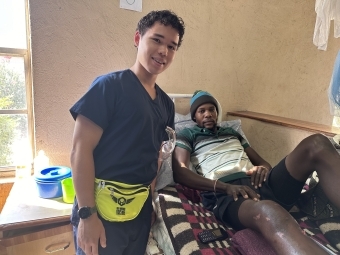
Thomas Lane gets to know patients while shadowing doctors during hospital rounds.
Like the doctors he shadowed, Lane filled in wherever he was needed, whether that meant sorting medications, taking vitals or helping splint a broken leg. The Davidson group also accompanied hospital staff from Mwandi into more rural villages, where they’d set up their mobile clinic, hand out Malaria tests and treat those living beyond the hospital’s reach.
“Even within Zambia, there’s a huge difference between living in the city and living in a rural area,” he said. “It was interesting to hear from the doctors who were committed to working in rural villages. They have such genuine care for the community.”
Back at the hospital in Mwandi, Lane especially enjoyed hosting a clinic for young children. Immediately after returning to the United States, he shadowed a heart surgery at the Boston Children’s Hospital and said seeing such a stark difference in resources inspired him to think about going into pediatrics.
“My time in Zambia helped me realize more fully why I wanted to go into medicine,” he said. “I saw countless hospital staff put so much effort and kindness into caring for their patients. It was essential to understanding the relationship between healthcare and the community. Their actions will stick with me and help me become a better physician and human.”
Alexis McDonnell ’23: Ecology Research in Patagonian Glaciers
When McDonnell arrived at Davidson during the COVID-19 pandemic, she didn’t think she’d get the chance to study abroad. As a George S. Leight and Heinze Scholar, biology major and distance runner who also worked through college, she had a lot on her plate.
“I was always pressed for time,” she said. “As I got closer to my senior year, I knew I was interested in going to grad school for biology, but my interests were so broad that I didn’t know where I wanted to specialize.”
McDonnell left the east coast for the first time for an REU internship at Montana State University, where she worked in the Boyd Lab studying hot spring microbiology. The combined fieldwork and laboratory experience gave her the confidence to pursue additional research opportunities outside of Davidson and to apply to doctoral programs in biology. Despite accepting an offer to begin her graduate studies in the fall of 2023, she felt drawn to pursue another experiential research opportunity to hone her interests. This motivated her application for the Putnam Fund, which she used to study Patagonian ecology with the School for Field Studies in Chilean Patagonia.
“Southern Patagonia, and glacial environments in general, are fascinating because they present unique seasonal challenges to both macrobes and microbes that inhabit them,” she said. “One of my professors was a glaciologist, which is how I gained exposure to the new-to-me field of glacial ecology.”
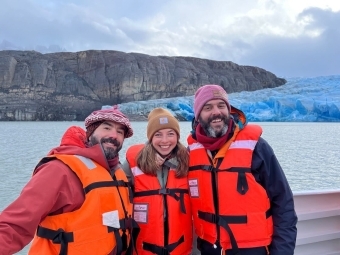
Alexis McDonnell in Patagonia, Chile, with researchers
The group consisted of all kinds of scientists, and McDonnell, as the only researcher with a strictly-biology background, found herself taking a leadership role. She became especially interested in bringing her knowledge of biology and genomics to the social and environmental context of the Patagonian region.
“It was a perspective-shifting experience to conduct science outside of the Western academic system,” she said. “Because we all came from different academic and social backgrounds, no one was embarrassed to ask questions, and much like at Davidson, faculty prioritized community involvement. It also gave me confidence in my ability to travel, communicate and secure funding on my own.”
Her experience in Chile changed the course of McDonnell’s academic career, making her realize she wanted to pursue a doctorate in extremophile microbiology. She returned to the Boyd Lab at Montana State, where she continues to study glaciers after securing a NASA FINESST fellowship in her first year.
“My time in Chile made me realize the questions I’m interested in are theoretical and evolutionary,” she said. “It helped me get excited about science again in its most basic form.”
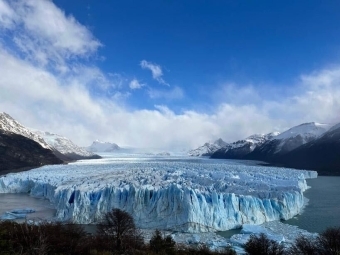
Patagonia’s glacial landscape is characterized by two large icefields.
A Legacy of Learning
In the coming years, thanks to support from the Davidson community, more students will get to pursue life-changing experiences studying biology abroad.
For the Class of ’79 friends who launched the fund, the biggest reward is honoring Professor Putnam in his retirement by continuing his legacy of adventure and curiosity. They have been deeply moved by the outpouring of support from Davidson alums whose lives Putnam shaped over his decades of teaching.
“As tough as he could be, he never said ‘no’ when a student was struggling,” Parkerson said. “He was always finding a way to get to you, to get on your level and take the extra time to try something different. Almost everyone I talked to said they wouldn’t be where they are today if not for his mentorship and guidance.”
Want to support the Jeremiah Putnam Endowed Biology Fund? Whether you’re a former student of Professor Putnam’s or just interested in supporting student research and travel experiences, you can make a gift today.

